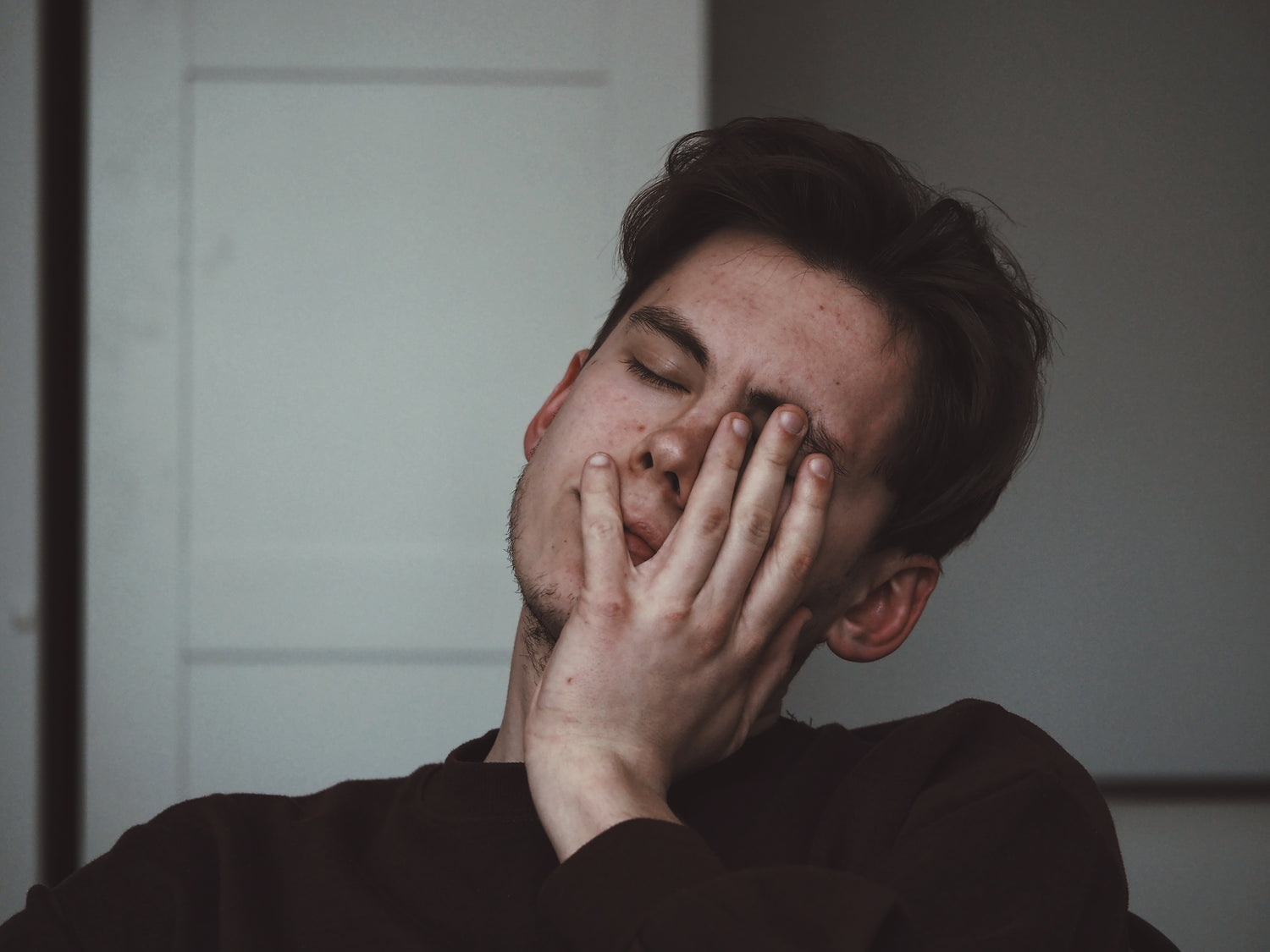The Science of Hangovers: Unraveling the Mystery and How to Outsmart Them

We've all been there: waking up after a night of fun and festivities, only to be greeted by a pounding headache, nausea, and an overwhelming sense of regret. Yes, the dreaded hangover has struck again. But what exactly causes these unwelcome symptoms, and more importantly, how can we prevent them? Grab a glass of water, and let's dive into the science behind hangovers and how Tend-2 can help you relieve the symptoms of occasional hangovers (while reminding you to drink responsibly).
The Science Behind Hangovers
Dehydration and Electrolyte Imbalance
Alcohol is a diuretic, which means it increases urine production and can leave you feeling parched like a cactus in the desert. This dehydration can lead to headaches, dizziness, and fatigue. But it doesn't stop there! Your body's electrolyte balance also goes haywire, causing symptoms like muscle cramps and weakness.
Inflammation and Immune System Response
Alcohol can trigger an inflammatory response in your body, releasing chemicals called cytokines. These little troublemakers can cause symptoms like nausea, loss of appetite, and brain fog. It's like your immune system is throwing a tantrum because you had a little too much fun the night before.
Alcohol Metabolism and Toxic By-Products
As your body works tirelessly to process and eliminate alcohol, it produces a toxic by-product called acetaldehyde. This nasty chemical is responsible for some of the most unpleasant hangover symptoms, such as vomiting, sweating, and that "I-never-want-to-drink-again" feeling.
Sleep Disruption
Although alcohol might help you fall asleep faster, it disrupts your sleep cycle, reducing the quality of your rest. This can leave you feeling groggy, irritable, and like a zombie that's had one too many cocktails.
Tips to Prevent Hangovers with Tend-2
Start with Tend-2
Before diving into other hangover prevention tips, it's essential to mention Tend-2, a game-changing product designed to help your body combat the symptoms of occasional hangovers. With a 0.2% refund rate, we back the product so much that we'll give you your money back within 30 days if it doesn't work for you. Tend-2 contains a unique blend of ingredients that work together to replenish lost nutrients, support liver function, and reduce inflammation, making it the ultimate hangover relief companion.
Drink Water and Stay Hydrated
One of the simplest ways to avoid a hangover is to drink water throughout the night. Alternate between alcoholic beverages, Tend-2, and water to keep your body hydrated and your hangover at bay.
Eat a Balanced Meal Before Consuming Alcohol
Eating a meal rich in proteins, healthy fats, and complex carbohydrates before drinking can help slow down alcohol absorption and provide your body with the nutrients it needs to fight off a hangover.
Drink Alcohol in Moderation
This one might seem obvious, but drinking in moderation is key to avoiding a nasty hangover. Try to limit your alcohol intake, and remember that slow and steady wins the hangover-free race.
Choose Drinks with Fewer Congeners
Congeners are chemicals found in alcoholic beverages that can contribute to hangover symptoms. Clear liquors, like vodka and gin, tend to have fewer congeners than darker ones, like whiskey and red wine. So, choose wisely, and your head might thank you the next day.
Get Enough Sleep
Making sure you get enough sleep after a night of drinking is crucial for minimising hangover symptoms. When you consume alcohol, it can interfere with your sleep patterns, causing you to wake up more frequently throughout the night and preventing you from entering the deeper stages of sleep that are essential for rest and recovery.
To improve the quality of your sleep after drinking, consider the following tips:
- Create a sleep-friendly environment: Keep your bedroom cool, dark, and quiet to promote relaxation and make it easier for you to fall asleep. You can also use blackout curtains, earplugs, or a white noise machine to block out any potential disturbances.
- Establish a bedtime routine: Developing a consistent bedtime routine can help signal to your body that it's time to wind down and prepare for sleep. Consider incorporating activities such as reading, taking a warm bath, or practicing relaxation techniques like deep breathing or meditation.
- Limit screen time before bed: The blue light emitted from screens can interfere with your body's production of melatonin, the hormone responsible for regulating sleep. Aim to avoid screens at least an hour before bedtime to help your body prepare for a restful night.
- Avoid caffeine and nicotine: Both caffeine and nicotine are stimulants that can make it harder for you to fall asleep. Try to avoid consuming these substances, especially in the hours leading up to bedtime.
- Give yourself time to wind down: It's important to give your body and mind time to relax and transition from the day's activities to a state of rest. Set aside at least 30 minutes before bedtime to engage in calming activities that can help you unwind.
By prioritising sleep and practicing healthy sleep habits, you'll give your body the time it needs to recover from the effects of alcohol, ultimately helping to minimise hangover symptoms and leave you feeling more refreshed the next day.

